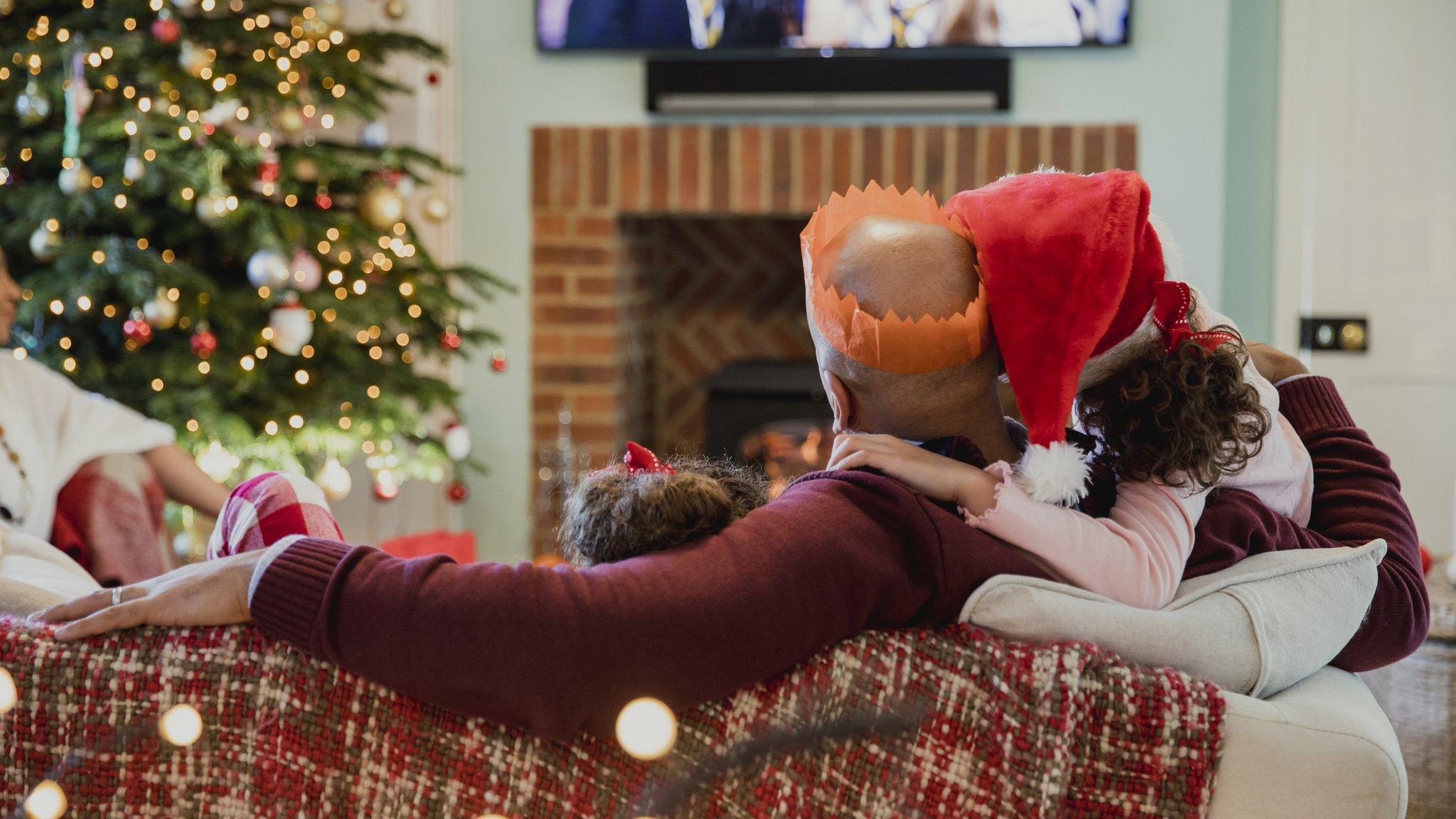Adopted children and Christmas: 'My seven-year-old walked out'
- Published
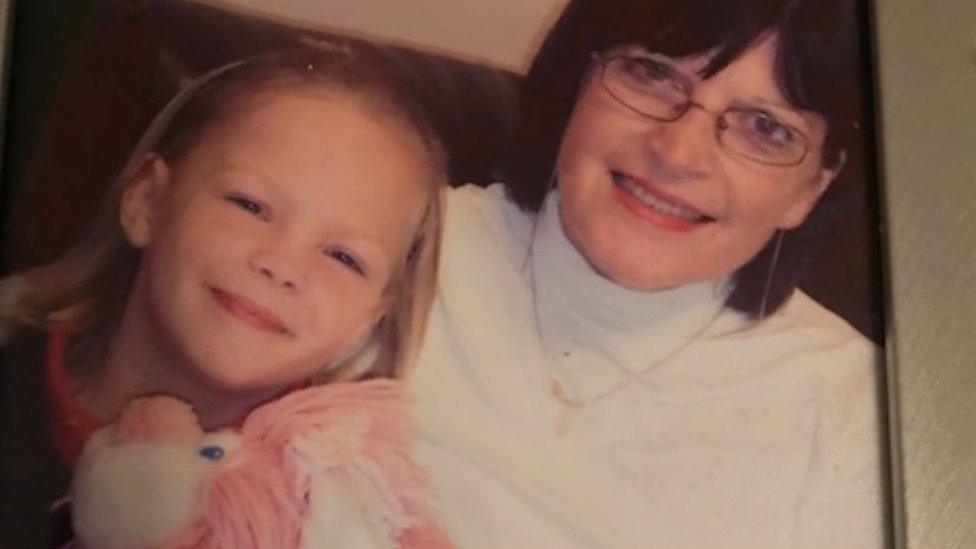
Frances Hurley adopted Tiffini when she was six
For thousands of children, Christmas is not a happy and magical time.
Here we look at two families with adopted children, for whom the festive season can prove difficult.
Frances Hurley, from Chesterfield, said her adopted daughter packed her things and walked out during their second Christmas together. She was seven years old.
"She got on her [hobby] horse, got her Barbie suitcase, put her pillow inside it, went out the front door and said 'I am leaving. I am going back to where I came from'. She had no shoes on.
"I let her go as far as the lamp post, which was about 50 yards away, and she kept looking back to see if I would come and get her.
"She came back, and that was a turning point. She knew I really loved her."
Tiffini lived with her birth parents until she was three, and then spent three years in foster care, before being adopted.
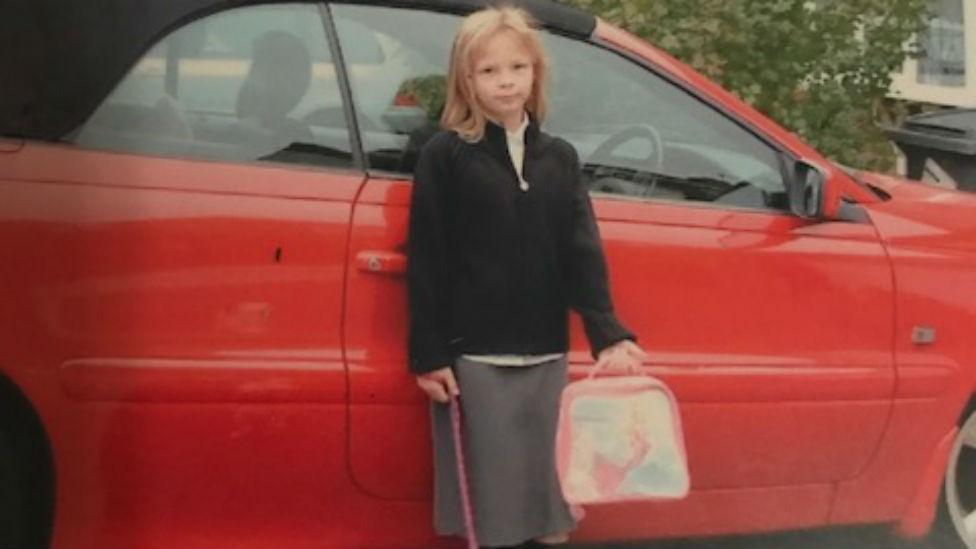
Tiffini went through 'a lot of pain' during her first Christmas with her adoptive mother
Mrs Hurley said she remembers their first Christmas together in 2004, only two months after Tiffini came to live with her.
"She came quite traumatised. We did not do a lot that Christmas because she was in a state of upset all of the time. I was on my own and I was single. She just wanted to get back to her birth mother.
"She went through a lot of pain. She wanted to be that girl that was traumatised and abused... she did not care. She wanted to go back."
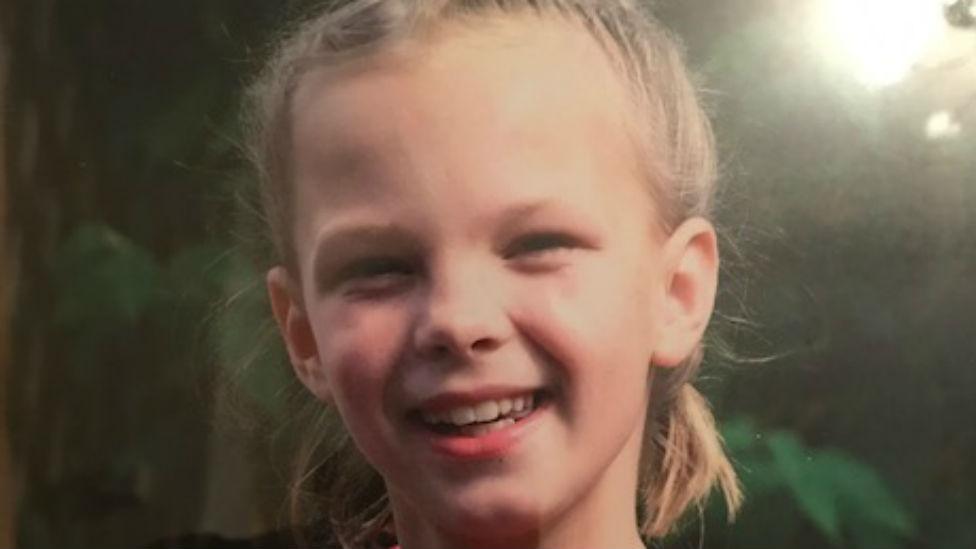
As she got older, things gradually began to get better for Tiffini
One of Tiffini's ways of coping with the festive season was to misbehave, said Mrs Hurley.
"She did not want to throw away any wrapping paper and boxes. I think it was a way for her to have some sort of control over Christmas.
"At new year she would sit on the stairs and cry."
Tiffini, now 20, said: "I was in a strange situation. I was sad, angry and I shouted a lot. I just wanted to be back with my other family - the family I knew. I was quite hard on my poor mum. I really did not want to know her. I would say 'you took me away from my family. I hate you'".
Dr Sue Armstrong Brown, chief executive of Adoption UK, said that children with experiences of neglect or abuse can find that the Christmas themes of belonging, generosity and togetherness trigger their past trauma all over again.
"Also, the all-pervasive mantra of being nice rather than naughty as a guarantee of good things just erodes the already shattered self-esteem of children, who believe they are unworthy of love because they didn't receive wholesome love in their early years."
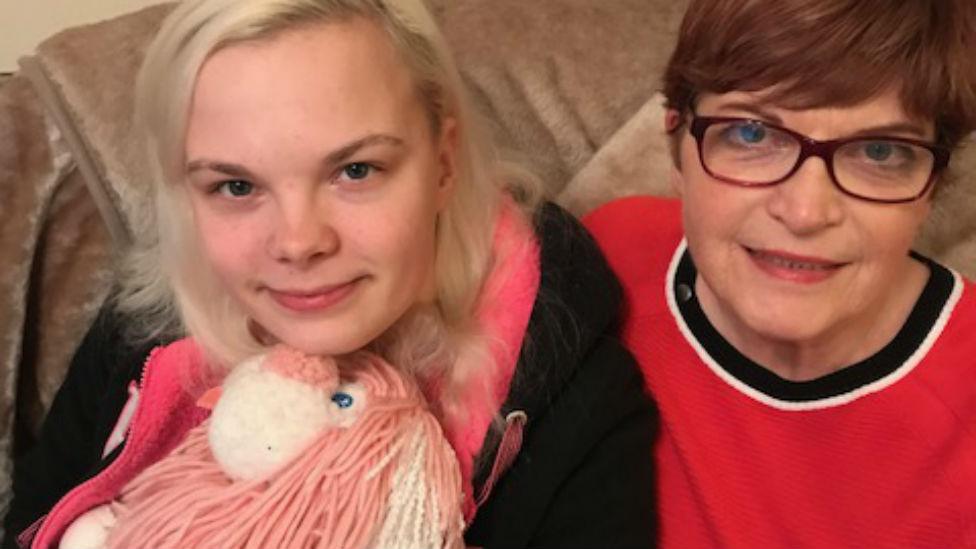
Things began to get better for Tiffini three years ago when she had contact with her birth brother.
"I invited him over that year around Christmas-time and it made her feel a bit more whole," said Mrs Hurley.
Tiffini also said that "hitting a certain age" had made her more appreciative of the stable home life her adoptive mother had given her.
Recently, the pair moved house, but didn't have time to buy a Christmas tree.
Mrs Hurley said Tiffini told her: 'We don't need a tree - we have each other'."
For single mother Claire from Newcastle-upon-Tyne, Christmas is also emotionally difficult - and coping with festive traditions can prove particularly challenging.
The 35-year-old has two adoptive daughters - Annie, aged four, and one-year-old Alice.
Annie has foetal alcohol syndrome which means she displays some quite difficult behaviour which is linked to sensory issues.
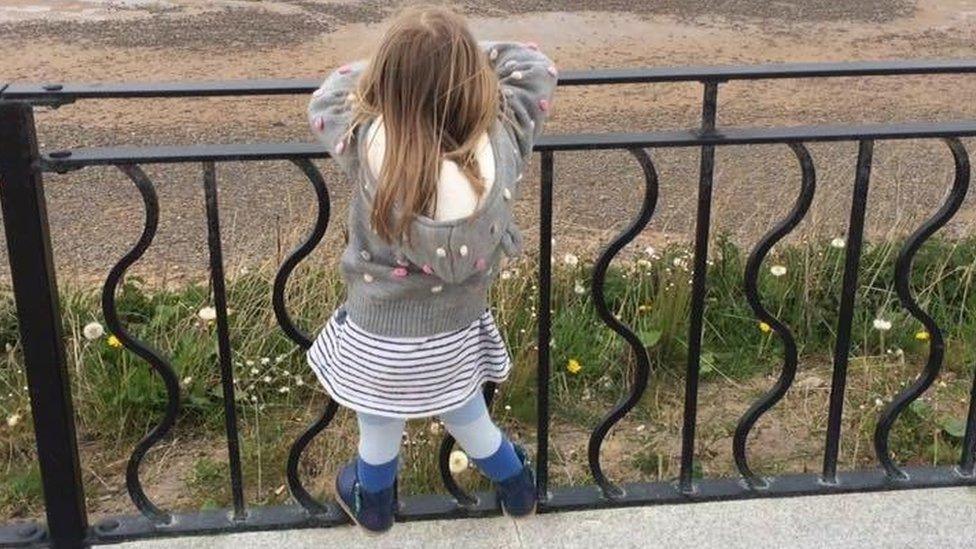
Annie gets anxious when people talk about Santa
"She found her first Christmas difficult even though she was very young," Claire said.
"Things were overwhelming, especially the noise of Christmas. She's also scared of Santa and finds it hard to cope.
"With Santa, the idea of a strange man coming into her house when she has not had a good start in life and things have been unsettled, is quite scary for her."
For this reason, Claire decided "not to do Santa" - she said it was clear this would not be beneficial for Annie.
She added: "It is a great time of year for children, but not all children can cope. It would be nice if people not in adoption circles were aware."
Claire said it is not helpful when strangers come up to Annie asking if Santa is coming to her house.
"I know people mean well and are trying to engage, but every time it happens it sets off her anxiety because she is scared of this man."
Also, Claire said she wants Annie to know she always tells her the truth. She thinks this is important for when Annie starts to ask difficult adoption questions.
"It is a controversial one, but I think it is important when I have a child like mine that we keep reality and fantasy separate."
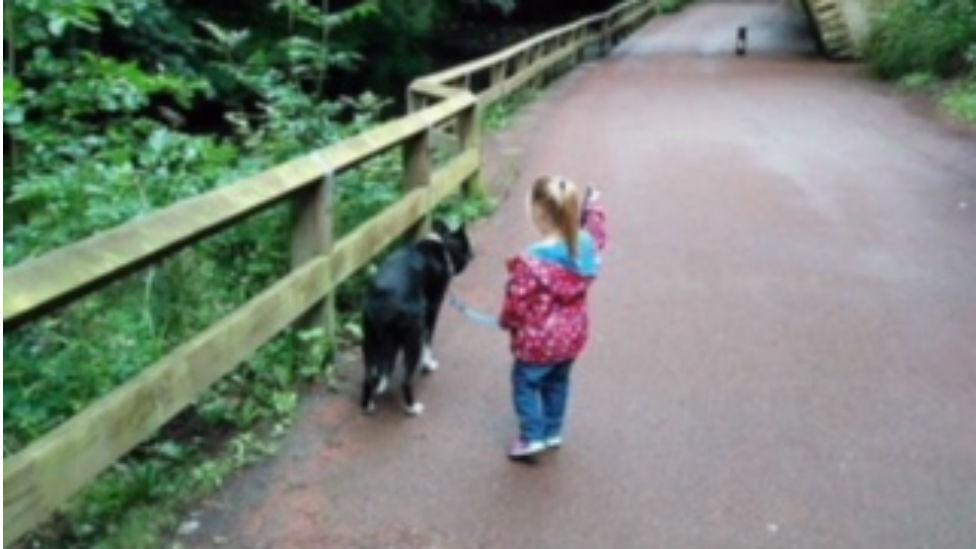
Annie also becomes very cuddly at Christmas
She said to help Annie cope with Christmas, she tries to keep things low key.
"It is more crowded [at Christmas], noisy, everything is different. We do participate in Christmas things, but it's difficult for her to enjoy.
"She becomes really cuddly at Christmas time and more unsettled and anxious. She's affected by change because she has come from so much upheaval."
On Christmas Day, Claire's parents will visit, but only for breakfast. Claire said she comes from a family which celebrates Christmas in a big way, but knows this is not right for her girls.
"I don't see the point of doing something you think you should when it just causes stress and anxiety."
If you need advice about any of the issues in this article, you can visit Adoption UK, external's website.
- Published18 December 2017
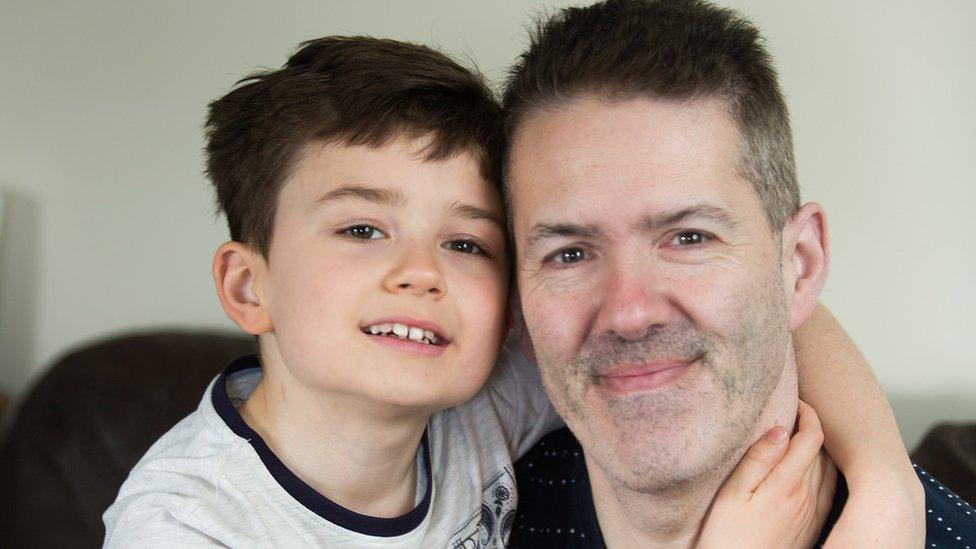
- Published21 October 2017

- Published19 December 2017
